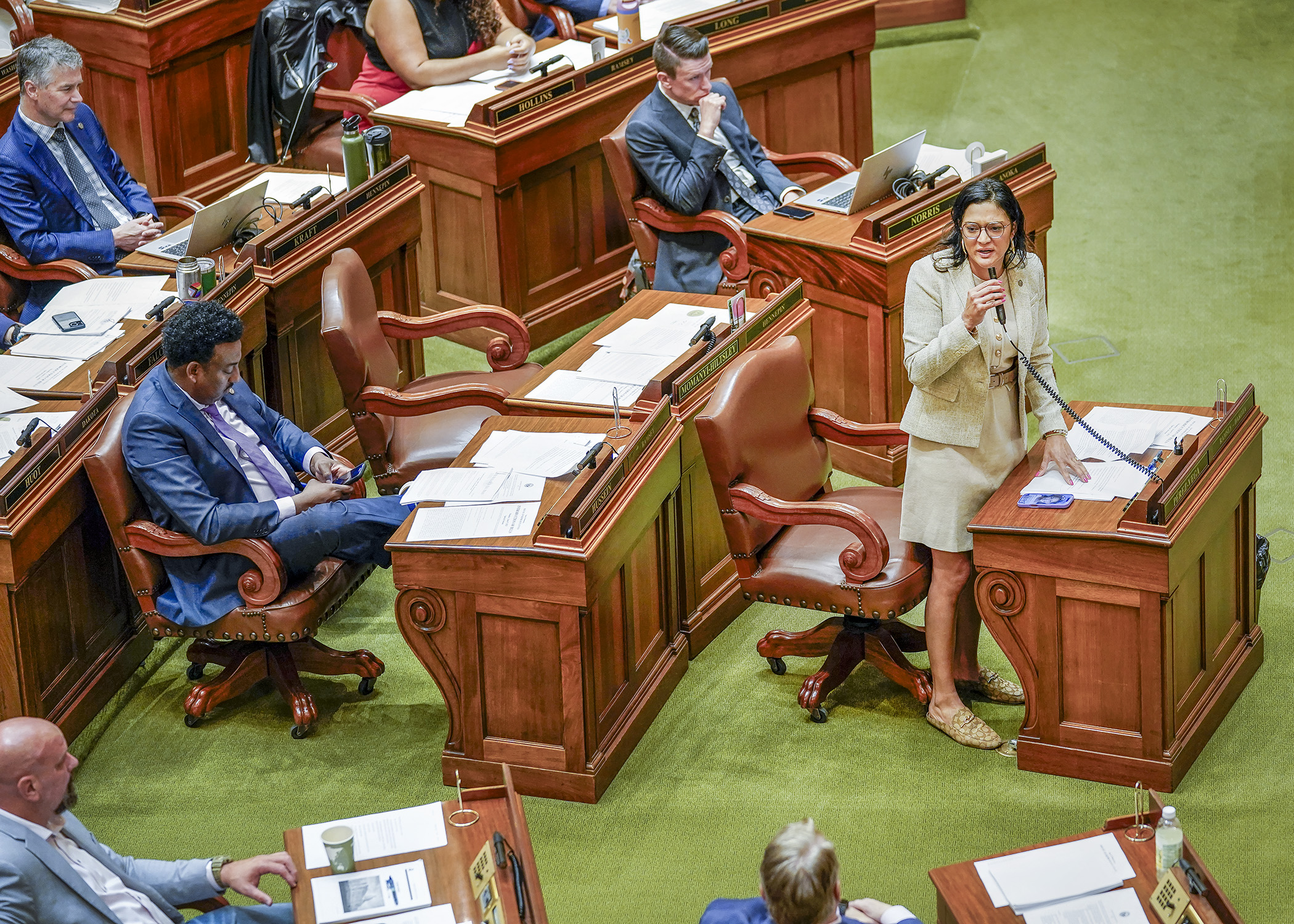Bill to end MinnesotaCare eligibility for undocumented adult immigrants goes to governor

— UPDATED at 5:12 p.m. following Senate vote
The House kicked off Monday’s special session with probably one of the most politically charged bills.
After hours of emotional debate, a bill to end undocumented adult immigrants’ eligibility for MinnesotaCare passed 68-65 with Speaker Emerita Melissa Hortman (DFL-Brooklyn Park) providing the lone DFL vote.
Passed 37-30 by the Senate, it now goes to the governor for his signature.
Per SSHF1, “undocumented noncitizens who are age 18 years old or older” who are enrolled in MinnesotaCare, the state’s low-income health insurance program, would no longer be eligible after Dec. 31, 2025. Undocumented adult immigrants not already enrolled in MinnesotaCare would not be allowed to enroll.
Supporters said passage of the bill is key to ensuring MinnesotaCare’s financial health. The change to MinnesotaCare is expected to save $56.9 million in the 2026-27 biennium.
Rep. Jeff Backer (R-Browns Valley), who sponsors SSHF1, said the measure is about being fiscally responsible and that the state bears the full cost of covering undocumented adults, as opposed to the federal government covering most of the cost for citizens.
"We cannot justify spending hundreds of millions on individuals who broke the law to enter the country while we face cuts to special education, nursing homes, and disability services,” Sen. Jordan Rasmusson (R-Fergus Falls) said in a statement.
Bill opponents, however, say the measure would not save money because it is less expensive to provide health insurance than for people to receive emergency care in hospitals.
Moreover, legislators argue that costs are secondary.
“These aren't just policy debates; they're life-and-death decisions that will leave families without care when they need it most,” members of the House People of Color and Indigenous Caucus wrote in a statement.
Rep. Samantha Sencer-Mura (DFL-Mpls) unsuccessfully offered an amendment that would have extended eligibility to undocumented adult immigrants who are older than 59 or have a critical health care condition, including cancer, diabetes, and coronary artery disease.
Related Articles
Search Session Daily
Advanced Search OptionsPriority Dailies
Stable budget outlook projects $3.7 billion surplus now, no deficit in next biennium
By Lisa Kaczke The projected surplus for Fiscal Years 2026-27 is now higher than it was in the November estimate, and no deficit is projected for the next biennium.
“Minnesota’s budge...
The projected surplus for Fiscal Years 2026-27 is now higher than it was in the November estimate, and no deficit is projected for the next biennium.
“Minnesota’s budge...
Legislative leaders set 2026 committee deadlines
By Lisa Kaczke Legislative leaders on Tuesday officially set the timeline for getting bills through the committee process during the upcoming 2026 session.
Here are the three deadlines for...
Legislative leaders on Tuesday officially set the timeline for getting bills through the committee process during the upcoming 2026 session.
Here are the three deadlines for...